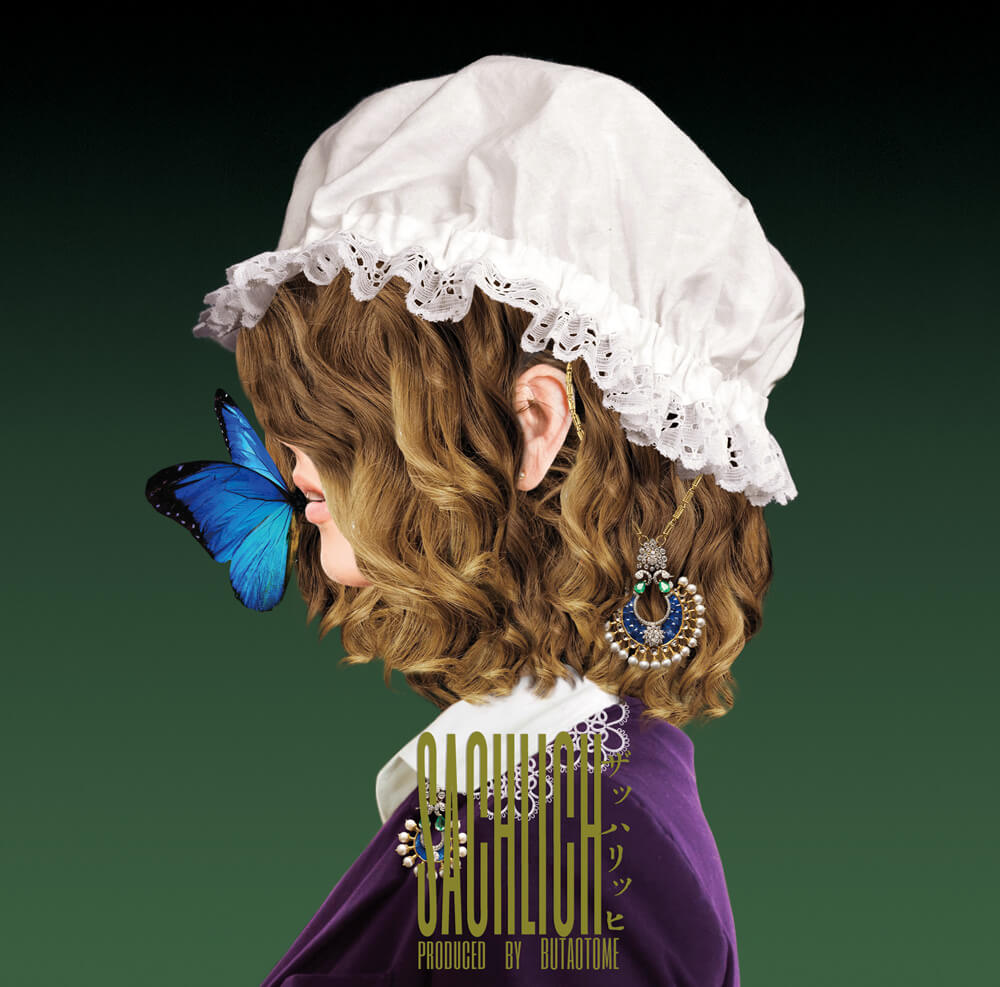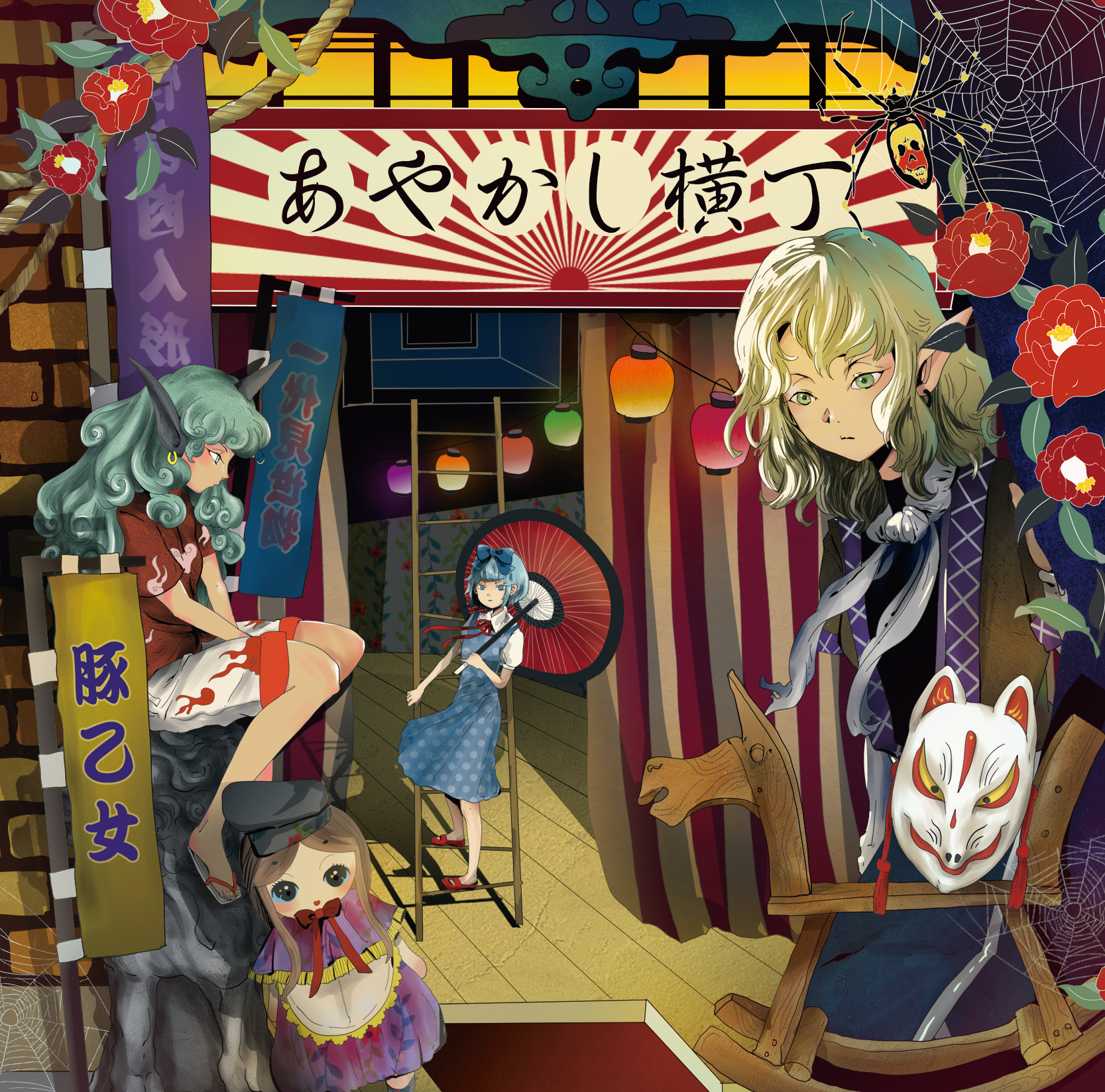The idea for this post was born from my overall dissatisfaction towards the BUTAOTOME albums (the ones with new vocal material, so no Guerrilla, the Nekokenbans, etc.) released since C94. This includes Epitaph’s XFD and the Haru no Yuki live performance. Now I just hope the three good songs from the XFD will be able to save it (the slow songs and the Pap-arranged one). But I want to save any further talk about it for the Reitaisai 16 albums review.
There have been some albums in the past I wasn’t happy about to the point that I wasn’t in the mood to review them. But were those albums really that bad? In this post, I want to revisit them. I want to explain why I didn’t like them back then and I will try to find their great qualities. Starting with…
Sachlich

Sachlich, or Sachligh, as they wrote on iTunes/Google Play/Booth. Because it’s cool to write things in a language you don’t know, isn’t it? Things aside, this is probably one of the most overlooked BUTAOTOME releases, for multiple reasons.
First of all, it was released on March 26th, 2017, as a release for the Kyoukai kara Mieta Keshiki event, an event solely dedicated to the Hifuu Club. An album that is released on a non-Comiket/Reitaisai event is generally a minor release. But what, in my opinion, really hurt this album’s visibility was the timing of its release, 11 days after Furubokko, which was the first major release. Furubokko was in the spotlight for the entire first half of the year, while Sachlich hardly got any mention from BUTAOTOME themselves after the release, and they never played any song from it live (not even one of the instrumentals as a random interlude).
Another thing that probably turned off a lot of people was the idea of having Ranko no Ane sing. Considering that the albums with Paprika and Comp singing are pretty much “fun releases that aren’t supposed to be taken seriously” and that “animals can’t sing” (oh wait…), having another non-singer take a vocal role doesn’t sound really exciting. The main difference is that, unlike I LOVE RED/I LOVE CHERRY, Ane’s vocals are not the main focus of this album. She only gets 3 tracks out of 8 and the disc is not labelled as “BUTAOTOME feat. lazy bunny” or something like that.
The Sis’ singing voice is not that bad, but she doesn’t have the range of a proper singer and sounds like a Paprika with a lower pitch.
Now that we have analyzed all of Sachlich’s main “issues”, does this album have any redeeming qualities? Well… Actually yes. The arrangements are very good! Each one of them is quite different and there is a good “classic” feel in the album, while keeping a great variety. Asa no Bebedor is a nice harmonica-based piece, reminiscent of Futatsu no Cinema and co.. Arifureta Gitai is swingy rock. Salon de Anonymous sounds like something fitting for an old-styled inn in a videogame. Shin’ya no Café Terrace is a ’20s American-style piano tune. Toki wo Miru Hito is a good, typical Paprika instrumental track. Maybe a couple of tracks could benefit from some vocals… But anyway, I’m also glad that a couple of them are in Yuusei Hakurankai. The vocal tracks are also great, if you can get over Ane’s singing. M no iru Heya is a Paprilicious piano piece with a classical influence, other instruments kick in very late into the song. Mystery wa Kichi no Soto is a jazz song that I wish would get a Ranko version. Mugen Tajuu Curtain has a quite ominous and tragic feeling.
In my opinion this is an experiment that wasn’t able to fully express its potential – a release that was made solely for the Hifuu-only event, and was fated to be overshadowed. I think it would have been much more interesting if they worked on Ane’s vocals in another way (like making a drama CD, because her talking voice is good) and maybe added some more tracks.
However, if you are a Hifuu fan who is not ultra nitpicky, or you aren’t a BUTAOTOME purist who just wants Ranko stuff, I can recommend you this album.
Now, to the next album!
Ayakashi Yokochou

Ayakashi Yokochou was released in December 2017, for Comiket 93. I wasn’t really happy about it ever since the album’s web page was published. I think this release was a victim of overhype for me. Comp talked about the upcoming album having “the most variation” and Ranko was really excited on Twitter. I never saw her that happy for an album ever since Kyou ga Saigo no Ichinichi, in Spring 2016. And Ichinichi is in my top 5 albums! Buuuut an album that sounded like it tried too much to be a new Shoujo Rengoku, with two remake tracks, more Cirno pandering and some arranges of themes already made in the past that sounded too similar to the previous ones (but those were just a bad impression from the XFD) wasn’t exactly the thing I was expecting from “the next masterpiece”. This is why I wasn’t a big fan of it at the beginning.
The album kicks off with Mesen, a track that has been talked about a lot. Unlike pretty much anything released post-2010, it managed to become a strong live staple, rivaling the Undroppable GenSate in the 2018 live counts. And all of this without getting any other type of official support (PV, appearance in music game/karaoke services, etc.)!
It’s just one of the perfect live tracks that you need to experience at least once (boyfriend confirms). It’s also a refreshing take on Aun’s theme, not too overly faithful to it, and it’s one of the few arranges that is not a cute wan wan moe thing. But I admit one thing: I used to think the pan pan parts were kinda irritating and didn’t make me enjoy the song as much as I wanted.
Half of the album is arranged by Comp, the other one by Paprika, and their tracks alternate in the tracklist, like a colorful match. Other than Mesen, the bear delivers us Dare ni mo Ienai Blues and Inzen (and the Koi no Yamai remake). The first is like… a very unique song, not just in the entire repertoire but also probably in the entire Touhou fanmusic world. Even though it’s Cirno (2017 was her year), it’s still appreciable. The second is a simply marvellous and catchy jazz rock piece, and my personal (and Ranko’s) favorite of the album.
This album also shows how Paprika evolved in her way of arranging vocal songs. She has 4 songs (including the Utakata remake), and they show different shades of her talent. I swear Tanin no Kao (a swingy piece that is like Towa no Maigo, but without the angriness) and Hitokakera (a nice orchestralish tune) sound like something Comp could have done. Utsukushii Hito is there if you want something more standard from her.
I think a malus of this album is the presence of two rearrangements of old songs, instead of just one. They give me the feeling of “filler” songs made just to reach the 8-track quota (a feeling I only got with those two and with Ima Narabe on Daifugou). The Rojiura versions of Koi no Yamai and Utakata aren’t particularly exciting remakes, Utakata is a pure piano + vocals rearrange that removes what made that song so unique and popular. I think they would have shined more in an actual album of re-arranges.
Overall, this is an album that aimed to go in the same direction as Shoujo Rengoku 3 (which was a departure from the first two albums of the series, as well as the actual fourth one), with a more jazz/old-school approach, but I think it lacked of something. Still, it has the BUTAOTOME music members at top of their form and at least one track will satisfy the tastes of every Piggy!
And that’s all for this post. Thanks for reading! Now I kinda want to review some other old BUTAOTOME albums! Maybe after the Reitaisai 16 releases…